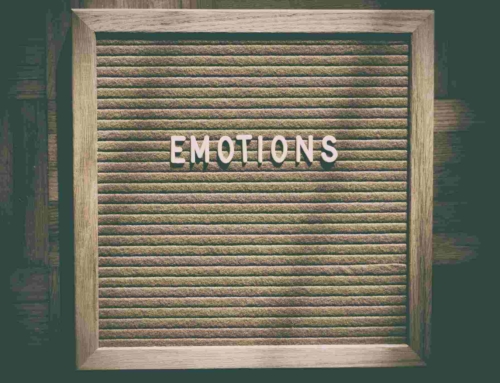 Trauma can come in all different shapes and sizes. Something that is traumatic to one person, might not be traumatic for the next. Trauma is defined, by the psychology dictionary, as an occurrence wherein an individual sees, or experiences a risk to their own life or physical safety, or that of other people and feels terror, fear, or helplessness.
Trauma can come in all different shapes and sizes. Something that is traumatic to one person, might not be traumatic for the next. Trauma is defined, by the psychology dictionary, as an occurrence wherein an individual sees, or experiences a risk to their own life or physical safety, or that of other people and feels terror, fear, or helplessness.
This is an experience that is forced upon an individual that was not wanted. In one’s childhood, the likelihood that you will experience a traumatic event is anywhere from 15-43 percent. Trauma can be a single event or it can be the combination of multiple events.
A single event trauma is called acute trauma. This can be something like a car accident, sexual assault, or a natural disaster. Chronic Trauma is a combination of many events, such as exposure to childhood abuse, gang violence, domestic violence or bullying at school.
What is PTSD?
Post Traumatic stress disorder (PTSD) can be developed after trauma, both acute and chronic. Not everyone that experiences trauma develops PTSD. In a national study, it was shown that 39% of teenagers in the United States reported witnessing violence.
Of these 39 percent, 15 percent of females and 6 percent of males developed PTSD. Another study showed that 75 percent of children that lived through a school shooting and 90 percent who were sexually abused develop PTSD. PTSD is more likely to be developed as a teenager than it is as an adult.
PTSD is developed when the experience is so overwhelming that the brain isn’t able to process the event, freezes and goes into a state of shock. The logical side of the brain shuts down and therefore the experience is stored in the emotional side of the brain.
When this happens, the emotional or survival part of the brain tries to process the information but is too big to handle and it gets stuck in a loop. This loop is what keeps the trauma victim from moving on, and why teens who have experiences trauma often seem to “repeat” the trauma or put themselves in similar situations.
This is the brain’s attempt to process the event. This can also be manifested in flashbacks where the brain gets reminded of the trauma by a sound or a smell or a sight and throws the teen back into the traumatic event like they are living it all over again. PTSD can look similar to another diagnosis like anxiety, depression or even oppositional defiant disorder (ODD) and is challenging to parent a teen with PTSD.
Signs and Symptoms
When talking about signs and symptoms of trauma in teenagers, it can get confusing for parents because some of these symptoms are also just symptoms of being a teenager. When teenagers are in distress, they tend to go between wanting independence and being insecure.
 Teenagers can go through events that are extremely upsetting but are trying to find their independence from their parents, and don’t tell them what happened. Other times, traumatic events can be partly or completely blocked from the memory, so it can be hard for your teen to connect the symptoms that they are feeling to the traumatic event/s that they experienced.
Teenagers can go through events that are extremely upsetting but are trying to find their independence from their parents, and don’t tell them what happened. Other times, traumatic events can be partly or completely blocked from the memory, so it can be hard for your teen to connect the symptoms that they are feeling to the traumatic event/s that they experienced.
Due to this, 50% of teens will self-medicate with drugs or alcohol to deal with the confusing and painful feelings. There are different categories of symptoms, including behavioral, physical, cognitive and psychosocial, to see if your child might have had something traumatic happen to them.
Behavioral Symptoms:
- Reenactment of trauma through play
- Seeming to “recreate” the trauma by putting themselves in similar situations
- Angry outbursts
- Behavioral inhibition
- Reckless behaviors
- Regression
- Disturbed sleeping patterns
- Wanting to spend more time alone
- Being very protective of family and friends
- Returning to younger ways of behaving including giving up responsibilities
- Increased need for independence
- Self-absorption and caring only about what is immediately important
- Loss of interest or less pleasure out of school, friends, hobbies, and life in general
- Avoiding people, places, or situations that trigger memories of the traumatic event
- Self-Harm
- Suicidal thoughts/gestures
- Drastic changes in their peer group; drawn to negative peer influences
- Starting or increase in Substance abuse
- Easily startled
- Irritable or aggressive behavior
- Struggles to follow rules and limits (more than the average teenager)
- Less communication with family and close friends
- Poor self-care
Physical Symptoms:
- Smaller hippocampal volume
- Altered metabolism in areas of the brain involved in threat perception
- Low basal cortisol levels
- Feeling as though the event is happening all over again
- Sleep disturbances
- Complaints of headaches and stomach aches
- Difficulties with physical contact
- Appetite changes
Cognitive Symptoms:
- Feeling as though the trauma is happening again
- Trouble concentrating in school
- Negative cognitive development
- Altered cognitive functioning
- Increased arousal and hyper-vigilance
- Jumbled, out of order recollection of the event
- Difficulties with short-term memory, concentration and problem solving.
- Confusion and inability to make decisions
Psychosocial Symptoms:
- Emotional numbing
- Low self-esteem
- Inability to trust others
- Avoidance of memories or situations that trigger memories of the event
- Flashbacks of the event
- Intrusive memories of the event
- repetitively thinking about the traumatic event and talking about it often
- Nightmares and night terrors
- Fears about death
- Worry
- strong emotions such as sadness, anger, anxiety, and guilt
- Feeling of hopelessness
- Overreacting to minor irritations
- Panic attacks
- Constantly feeling on edge
- Withdrawing
- Feeling chronic shame/lack of self-worth
Because traumatic event effect people differently, not everyone needs therapy after a traumatic event. As a parent, it can be challenging to listen to your children when they say they don’t want therapy after a traumatic event. It is important to pay attention to your child’s behaviors.
Parent support
 When you are a parent and see these signs and symptoms, you might interpret them as misbehaving and in need of punishment. This is very unhelpful if your child is struggling with processing trauma.
When you are a parent and see these signs and symptoms, you might interpret them as misbehaving and in need of punishment. This is very unhelpful if your child is struggling with processing trauma.
What teenagers need in these moments are to know that there is someone that loves and cares about them no matter what happens. How can you make sure that your teen is supported by you?
Here are some ways to try and support your child.
- Encourage them to talk to someone. This does not have to be you or a professional. It can be someone at school or another adult family member.
- Listen to them when they talk to you about their trauma without judgement and without advising them or giving your opinion, until they ask for it.
- Genuinely show interest in what they are doing and what they are saying, give them your full attention when they talk to you. Ask about their day.
- Negotiate and flex rules and boundaries during the recovery process. (ex. If the rule is no friends over on weekdays, let your teens come over for a couple of hours after school.)
- Continue to give support, love, and trust, even if it is hard when they are showing inappropriate behaviors.
- Even if they seem completely different from the child they used to be, remember that they are the same person and they can achieve the same goals.
- If your teen asks for your feedback, let them know that their emotions and reactions to this event are normal and that even though they feel strong now, they will go away eventually.
- Do not try and fix the pain, or make it go away, just make sure you are there while they are feeling this pain.
- Do not change your teenagers’ normal routines. Try and keep some sense of normalcy such as going to school, having dinner together, going to soccer practice, going to siblings’ school and sports events.
- When your teen does start talking to you about their trauma, give them as much space as they need and do not push them to share more than they are ready to. Do not try and console them immediately and allow them to feel the emotions that they are feeling.
- If you notice that your teen starts to cope in unhealthy ways, don’t be afraid to point it out and talk about it in a calm, supportive and loving way. Let them know that you will support them in anyway that you can and be ready for them to lash out on you.
- Find local support groups for yourself and family on how to help your teen through this time and offer to take your teen to a support group.
This might feel really overwhelming but the most important thing to remember is to ensure that your teen feels safe with you and in your home and that people can be trusted. Don’t force them to talk to you, and be open and listen when they do want to talk.
Types of Therapy
 When seeking out therapy for your teenager, you want to look for someone who is trained in an evidenced based practice (EBP) to help process trauma. Some EBP’s include Trauma-Focused Cognitive Behavioral Therapy (TF-CBT), Cognitive Processing Therapy, Dialectical Behavioral Therapy (DBT), and Eye Movement Desensitization and Reprocessing (EMDR).
When seeking out therapy for your teenager, you want to look for someone who is trained in an evidenced based practice (EBP) to help process trauma. Some EBP’s include Trauma-Focused Cognitive Behavioral Therapy (TF-CBT), Cognitive Processing Therapy, Dialectical Behavioral Therapy (DBT), and Eye Movement Desensitization and Reprocessing (EMDR).
Cognitive Behavioral Therapy (CBT) is a really common form of talk therapy that processed how thoughts, behaviors, and emotions are all connected. This form of therapy helps identify and correct thinking mistakes, such as irrational thoughts, automatic and illogical thoughts surrounding the trauma.
This helps change the teen’s emotions and behaviors when interacting with situations or people that remind them of the traumatic event. CBT also includes psychoeducation about trauma symptoms, statistics and how to relax and build coping skills for stress.
Eye Movement Desensitization and Reprocessing (EMDR) is a technique that is increasingly in popularity among mental health professionals. EMDR uses guided eye movement exercises while the teen talks about and remembers the traumatic event. The teen works through cognitions and emotional responses they have the trauma. This helps reorganize the traumatic memory in a way that is more logical and not all stored associated with emotions.
Sometimes, therapy works best when paired with medications. There is some PTSD medication that can help keep the teenager at a baseline so that they are receptive to therapy. These medications are usually the same ones used to treat depression and anxiety. If these seem like an option your teen is interested in, ask your family doctor, or psychiatrist.
When Should I Seek Therapy for my Teen?
Your teen might not want to go to therapy, and that is okay. Everyone processes things differently and on their own schedule. Forcing your teenager into therapy when they are not ready is not helpful for your relationship with your teen.
There are some signs, however, that tell you that it might be time to force your teen into getting professional help processing their trauma. Some signs to look out for are your teen being reckless or showing harmful behaviors such as self-harm of abusing substances.
Some teens will show an increase of depressive and anxiety symptoms as well and if they persist and your teen is unwilling to communicate to someone about what is happening or what they are feeling, then encourage them to go seek professional help. If your teen’s behavior is a shock to you, or changes drastically seemingly overnight, and not showing any signs of recovery it could be dangerous for your teen to not see a therapist.
“Disturbed”, Courtesy of Chloe Capture, Flickr.com, Public Domain; “Narcotics”, Courtesy of Ajay Suresh, Flickr.com, CC BY 2.0 License; “Love”, Courtesy of Kevin Simmons, Flickr.com, CC BY 2.0 License; “Elise”, Courtesy of C H, Flickr.com, CC BY 2.0 License









